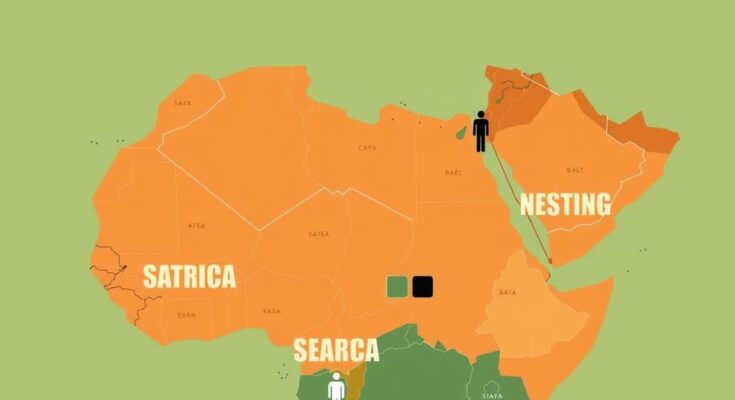Togo is seeking membership in the Alliance of Sahel States, aiming for enhanced regional cooperation and economic access to Mali, Burkina Faso, and Niger. Despite criticisms of its alignment with military governments, Togo’s strategy may simultaneously offer benefits and challenges for its relationship with ECOWAS. Analysts indicate that Togo’s membership could improve trade opportunities, yet heighten tensions regarding governance and regional stability.
Togo is actively pursuing membership in the Alliance of Sahel States (AES), which includes the military-led nations of Mali, Burkina Faso, and Niger. This move comes as Togo’s Foreign Minister, Robert Dussey, expressed that joining the AES could significantly benefit Togo by enhancing regional cooperation and providing coastal access for the landlocked countries, which currently rely on Togo’s port for trade.
Tensions with neighboring Ivory Coast and Benin have prompted AES countries to utilize Togo’s ports more frequently. Togo’s membership is seen by analysts as a means of fostering economic solidarity, access to Nigerien oil, and revitalized trade routes.
The presence of jihadist groups in northern Togo, particularly near Burkina Faso, exacerbates regional security concerns. The AES has struggled against these groups since the juntas took power and are expected to form a joint military force of 5,000 troops. Togo supports the AES strategy focused on regaining sovereignty and maintaining close ties with new partners like Russia.
Critics argue that Togo’s approach could shift attention from internal issues, such as the controversial new constitution that some believe enables President Faure Gnassingbe to extend his rule perpetually. The opposition warns that joining the AES may shield Togo from the regulatory influences of ECOWAS, as other AES members have distanced themselves from the West.
While Togo has historically maintained good relations with military regimes, it faces criticism for potentially neglecting its ECOWAS commitments. Analysts suggest that Togo could simultaneously engage with both organizations, leveraging its strategic position while exploring new opportunities. Nonetheless, there are fears that Togo’s alliance with the AES could undermine the ECOWAS framework, worsening regional instability.
In summary, Togo’s ambitions to join the Alliance of Sahel States represent a significant shift in regional dynamics, potentially benefiting both its own economy and the access needs of its neighbors. However, this move raises concerns about the implications for ECOWAS and Togo’s internal governance issues. The evolving relationships in West Africa will require careful navigation as political realities continue to change, impacting both regional cooperation and stability.
Original Source: thedefensepost.com




